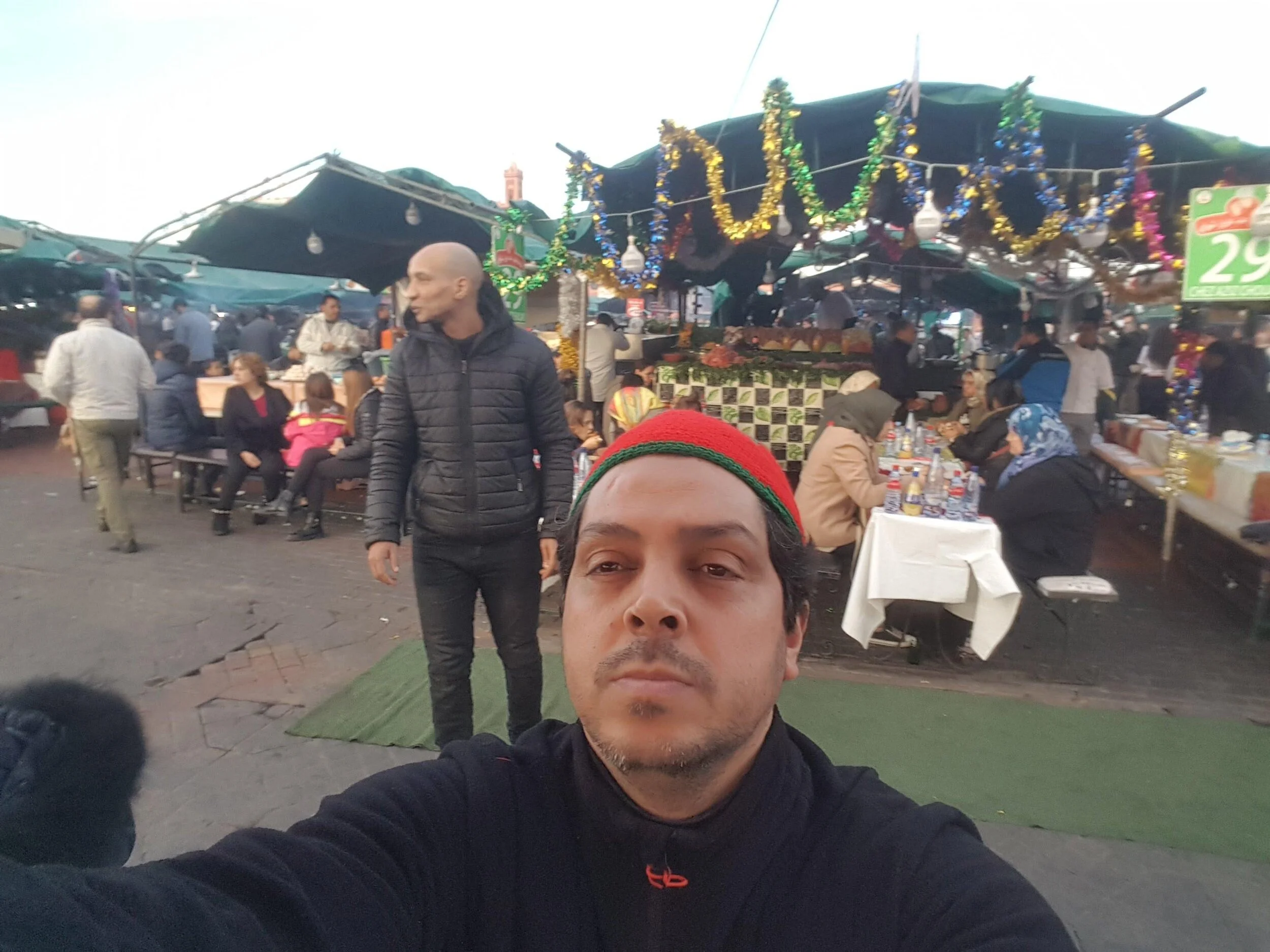"Eid Al Adha" by Outman Maghnaoui
In Islam, there are two big Eids, the first one is Eid Al Fitr which happens on the first days after the holy month of Ramadan. And the second one is Eid Al Adha also known as Eid El Kebir in Morocco (The Big Eid).
What and Why is Eid Al Adha عيد الأضحى?
It happens on the 10th day of the 12th month of the Islamic Calendar which is Du Al Hijjah.
It marks the willingness of Abraham to sacrifice his son, Ismael, to God. This is similar to the story of Abraham in the Old Testament. However, in the Old Testament it is Isaac who is offered as a sacrifice. In practice, Eid al-Adha today functions something more like a multi-day Thanksgiving… with lots of eating.
A Few Days Before the Eid
People buy the sacrificial animals for a price of between 1000dhs up to 7000dhs depending on how big the family is and how much they can afford. Sheep are everywhere and you can hear them baaing in almost every house.
Sacrifice an animal?
So, let’s talk about the animal sacrifices that are performed on Eid al-Adha. There is a tradition for Eid al-Adha which involves slaughtering an animal (usually a sheep or a goat, but it could be also a cow or a camel, depending on the region) and sharing the meat in three equal parts – for family, for relatives and friends, and for poor people. The goal is to make sure every Muslim gets to eat meat. And we’re talking about a lot of meat. In Morocco alone nearly 6 million animals are sacrificed on Eid days (about 5.5 million sheep and half a million goats with very few thousand cows or camels).
However, not everyone sacrifices animals. Charity is also a big part of the holiday and it is customary to donate a significant sum of money to charity, to be used to help the poor purchase new clothes and food, so they too may join in on the celebrations.
It is also good to note that according to statistics, the MENA region consumes less meat than other parts of the world.
Eid Day
In the early morning, everyone wakes up excited! Men go to pray in the mosque and women prepare delicious sweet and cookies for breakfast and it is all served with gratitude and happiness.
Then it comes to the moment to sacrifice the sheep which needs a lot of preparation, like sharpening the knives, cleaning the slaughtering space and getting all the butchering items ready.
Once the process is done, people visit their relatives, friends, and family to share their greetings and blessed wishes and collectively celebrate with their children.
The most common meal of the Eid day is Boulfaf, which is grilled liver wrapped in fat and served with mint tea and each family/region has its own special meals.
Young people benefit from this special occasion to make some money by creating seasonable jobs in the streets. For example: selling hay, coal, sharpening knives and on Eid day they barbecue the sheep’s head and feet. And in addition to that, many other people go knocking on doors picking up the sheep’s skin so they can work on it to make rugs or use the leather for other purposes.
From an economical perspective, the Eid Al Adha period in Morocco makes a business of 1.2 billion dollars.
Personally, if I were given the choice, looking at the current economic situation, I wouldn’t have bought a sheep. I would be happier to give away the money to other families struggling, especially after Eid, they will start thinking of the school year and that requires a certain budget too.
The government could compensate the farmers and that would directly lead to the prices going down and families wouldn’t feel the social pressure to buy one, but that requires courage from the authorities.
Outman Maghnaoui is a Senior Program Coordinator in Education Abroad at Amideast Morocco.






